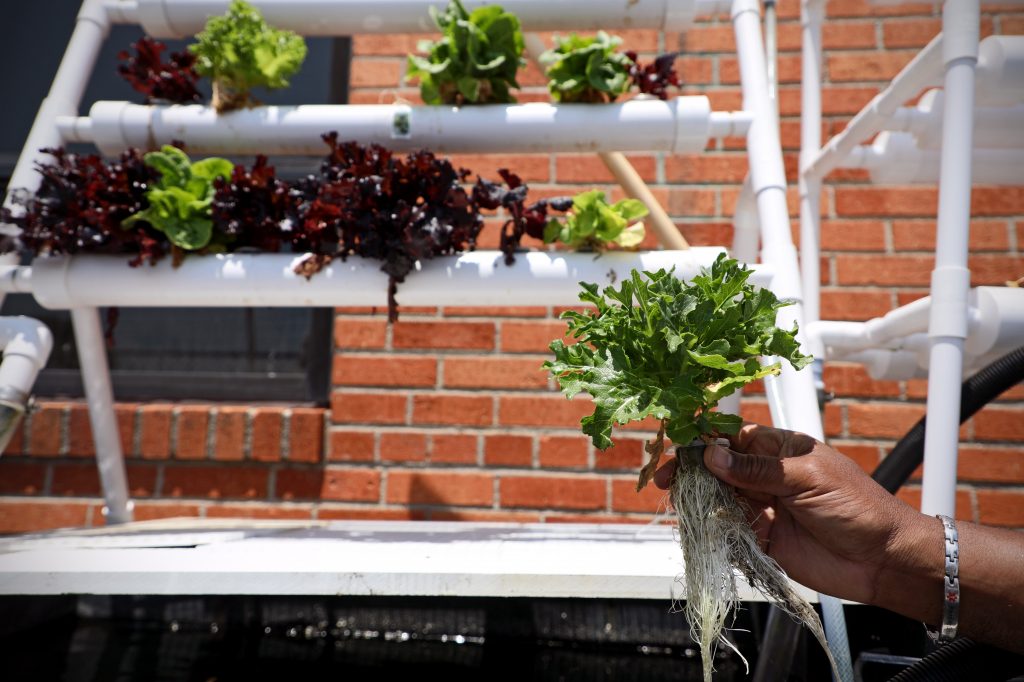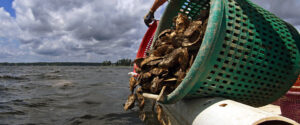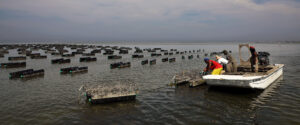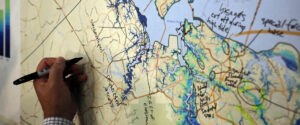VASG Fellow Aims to 'Elevate the Skate'
The market and normal distribution channels for the seafood industry—including aquaculture and aquaponics—have been disrupted by shutdowns and social distancing measures taken to lessen the spread of COVID-19. Researchers are documenting the magnitude of the impact.
A survey of aquaculture, aquaponics, and allied businesses conducted by aquaculture specialists at Virginia Tech’s Seafood Agricultural Research and Extension Center (VSAREC) and Ohio State University’s College of Food, Agricultural, and Environmental Sciences is tracking the effects of COVID-19 on U.S. aquaculture. The revenue loss facing the fish and shellfish markets is compounded by the fact that these products are especially perishable.
The survey, to be conducted quarterly throughout 2020, will document short- and long-term effects of the coronavirus for aquaculture, including aquaponic farms and allied businesses such as feed manufacturers. In first-quarter survey results, 90 percent of respondents said their farm or business has already been impacted. This preliminary analysis is based on 537 responses gathered nationwide between March 23-April 10.
“You have some people that have a product that they can’t move and other people that are not able to get something they need to produce their product,” said Jonathan van Senten, a VSAREC agribusiness and aquaculture economist and Virginia Sea Grant extension agent. “But the main thing everyone has in common is they can’t get their product to the market.”
He added that some businesses could not yet estimate a value for their loss, although reported estimates ranged from less than $1,000 to figures as high as $5 million.
Approximately one-third of the farms and businesses that participated in the survey have already had to lay off employees, and one-quarter of the respondents said they would have to lay off employees soon.

Virginia Sea Grant extension partners at Virginia Tech Virginia Seafood and Agriculture Research Center, like laboratory specialist George Wenn, work on aquaponic research in the downtown Hampton, Virginia facility.
(Photo by Aileen Devlin | Virginia Sea Grant)
“The product is just stuck right now,” VSAREC Director Michael Schwarz said. “The whole seafood industry is really shuttering right now because their markets are restaurants, their markets are high-end. Our Virginia seafood industry is shuttered because there’s nowhere for the product to go.”
In the United States, approximately two-thirds of all seafood is consumed in restaurants, according to a 2018 report by the National Oceanic and Atmospheric Administration. Reduced demand, distribution gaps, and access to needed supplies have all contributed to plummeting profits.
“This time of year is when people are gearing up for their big market opportunities, crops are about to be harvested, in terms of aquaculture and gearing up, stocking new fish,” van Senten said. “Without revenue, it becomes very difficult to cover your costs.”
Only 20 percent of respondents said they would be able to survive six months without external assistance.
The survey will help VSAREC prioritize immediate assistance for the industry as well as document how businesses used resources like CARES Act assistance. Researchers will also break down the effects by aquaculture region and type, such as mollusk, catfish, and trout aquaculture.
For example, fish farmers must continue to feed their fish, which will grow past the optimal size before the market can recover. A lack of oyster sales now means growers will have a higher inventory of oysters in the water during summer months, when they typically see higher levels of death and disease.
“Even if they don’t lose product to disease issues, later everyone is going to access the market at the same time when things start to come around, creating an oversupply issue, which again, will suppress prices,” van Senten said. “There’s a lot of medium- and long-term things we’re going to be looking at.”
Even as they mobilize to address existing crises, VASREC and its research partners are looking ahead. Resources developed in response to the coronavirus pandemic could be helpful to industries disrupted by sudden events in the future.
“Once we have an understanding of how this process evolves at the farm level or at the business level, we’ll know what we can do to be better prepared for something like this in the future,” van Senten said.
A list of COVID-19 resource maintained by VSAREC can be found here. Further information about survey results can be found here.
Photos by Aileen Devlin | Virginia Sea Grant
Story by Madeleine Jepsen | Virginia Sea Grant
Published April 22, 2020.
“This time of year is when people are gearing up for their big market opportunities, crops are about to be harvested, in terms of aquaculture and gearing up, stocking new fish,” van Senten said.





